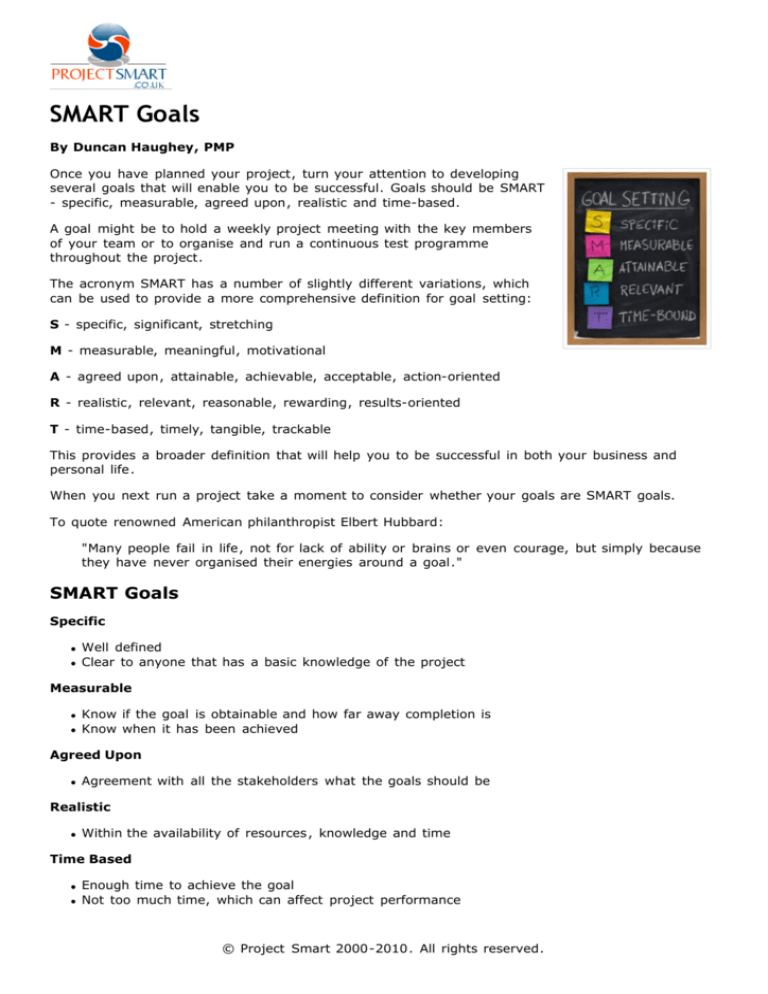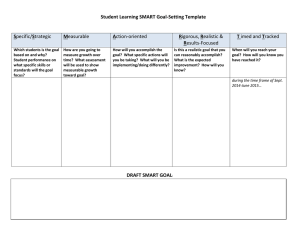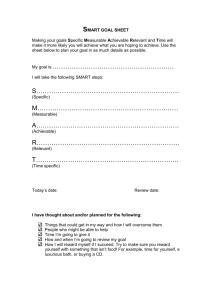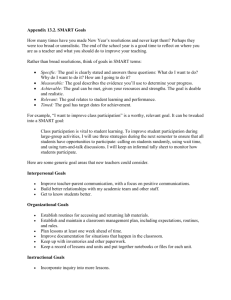
SMART Goals
By Duncan Haughey, PMP
Once you have planned your project, turn your attention to developing
several goals that will enable you to be successful. Goals should be SMART
- specific, measurable, agreed upon, realistic and time-based.
A goal might be to hold a weekly project meeting with the key members
of your team or to organise and run a continuous test programme
throughout the project.
The acronym SMART has a number of slightly different variations, which
can be used to provide a more comprehensive definition for goal setting:
S - specific, significant, stretching
M - measurable, meaningful, motivational
A - agreed upon, attainable, achievable, acceptable, action-oriented
R - realistic, relevant, reasonable, rewarding, results-oriented
T - time-based, timely, tangible, trackable
This provides a broader definition that will help you to be successful in both your business and
personal life.
When you next run a project take a moment to consider whether your goals are SMART goals.
To quote renowned American philanthropist Elbert Hubbard:
"Many people fail in life, not for lack of ability or brains or even courage, but simply because
they have never organised their energies around a goal."
SMART Goals
Specific
Well defined
Clear to anyone that has a basic knowledge of the project
Measurable
Know if the goal is obtainable and how far away completion is
Know when it has been achieved
Agreed Upon
Agreement with all the stakeholders what the goals should be
Realistic
Within the availability of resources, knowledge and time
Time Based
Enough time to achieve the goal
Not too much time, which can affect project performance
© Project Smart 2000-2010. All rights reserved.












